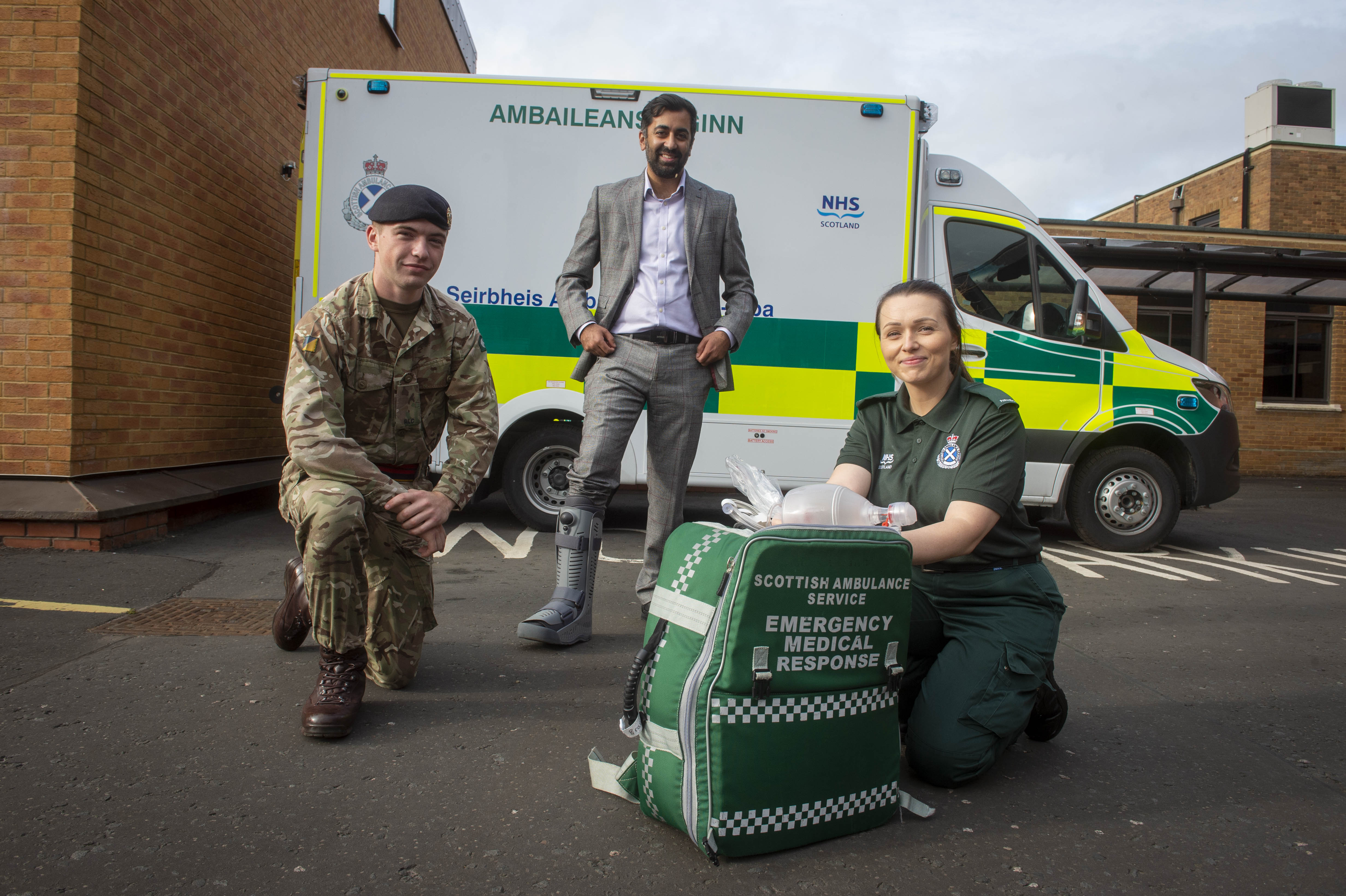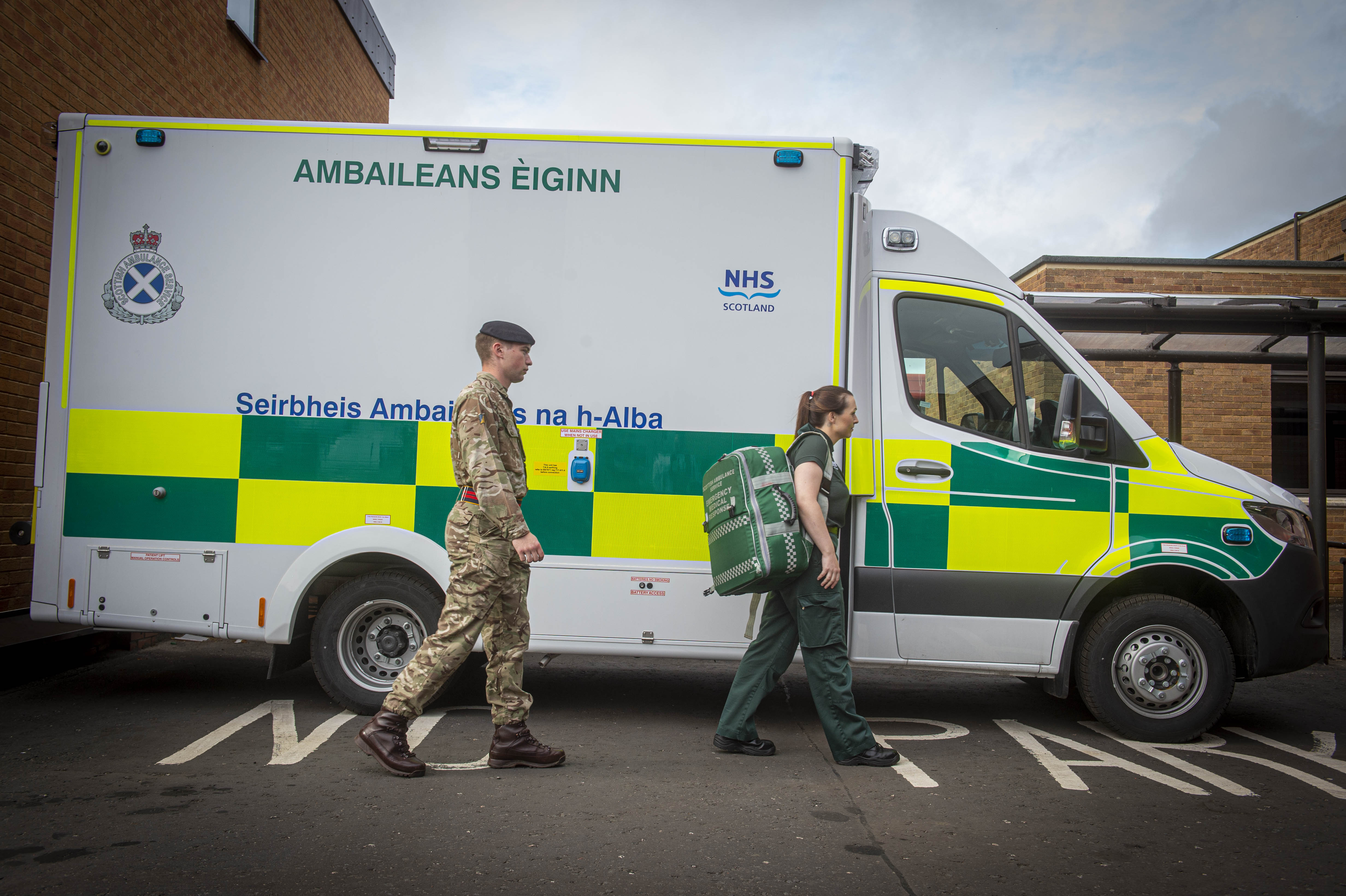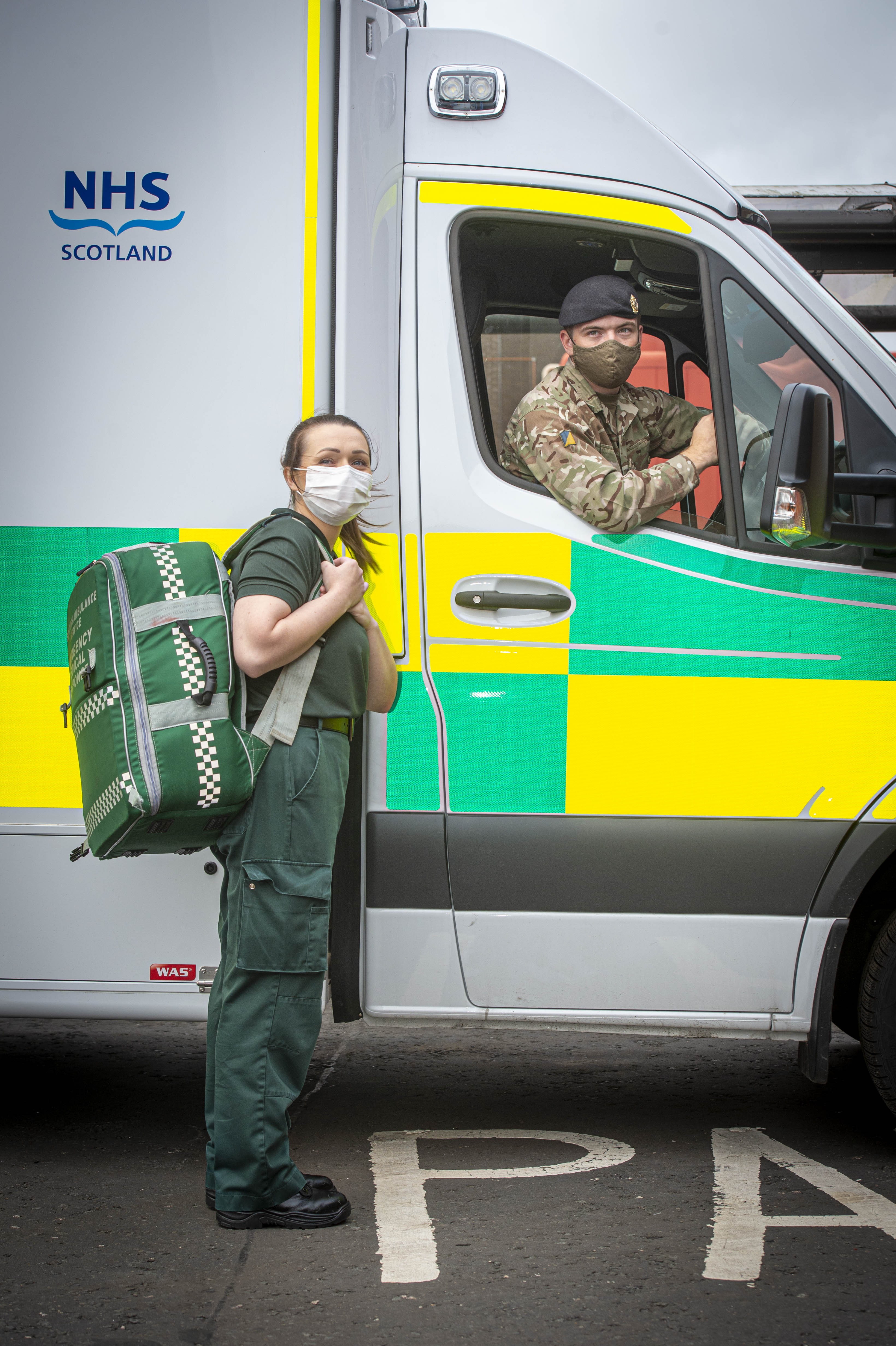Soldiers from 7 Regiment, Royal Logistic Corps based at Kendrew Barracks, Cottesmore, today joined partners from the Scottish Ambulance Service to undergo their training prior to deployment.
During their training, they took time out to meet the Scottish Government Secretary for Health & Social Care, Humza Yousaf MSP at the training facility in Hamilton. Mr Yousaf also met Deputy Commander 51 Infantry Brigade and Army HQ Scotland, Colonel Anthony Phillips, and the CEO of the Scottish Ambulance Service, Pauline Howie.
Following their training and familiarisation session, the Armed Forces personnel will begin to deploy across Scotland tomorrow, providing driver support for non-emergency ambulances over the next few months.
The UK Government approved the support through the Military Assistance to the Civil Authority (MACA) process, following a request from the Scotland Office, working with the Scottish Government. The Ministry of Defence will provide 114 people to augment ambulance drivers and a further 111 personnel who will operate Mobile Testing Units, which the military previously supported in 2020.
114 personnel, from 7 Regiment, Royal Logistics Corps, including drivers and support staff, will provide resilience to the Scottish Ambulance Service by carrying out non-emergency driving work, and each will be paired with a clinical professional. They will start in role from the 25th September and are expected to be on task for a couple of months. The support will focus on the central belt of Scotland, primarily Glasgow, Lanarkshire, Ayrshire and Arran, Fife and Edinburgh.
An additional 111 service personnel, from 2nd Battalion, The Royal Regiment of Scotland, will deploy to support the continued delivery of Mobile Testing Units to help identify infections and break chains of transmission. The military had significant experience of setting up and running testing programmes across the UK including in Scotland last year. The support will be provided primarily around Glasgow and Edinburgh and personnel will start their task by Wednesday 29th September.
The military has supported Scottish communities with the response to Covid-19 throughout the pandemic through the MACA process, including military liaison officers who have worked alongside local resilience teams and the Scottish Government. The military also provided advice on the construction of the NHS Louisa Jordan facility in central Glasgow, set up and ran testing programmes and latterly vaccination centres across Scotland, which saw Armed Forces personnel vaccinate over 100,000 people. The military have also been involved in logistics and planning support. The Armed Forces stand ready to step up and support civil authorities, devolved nations and communities as required in the coming months.





